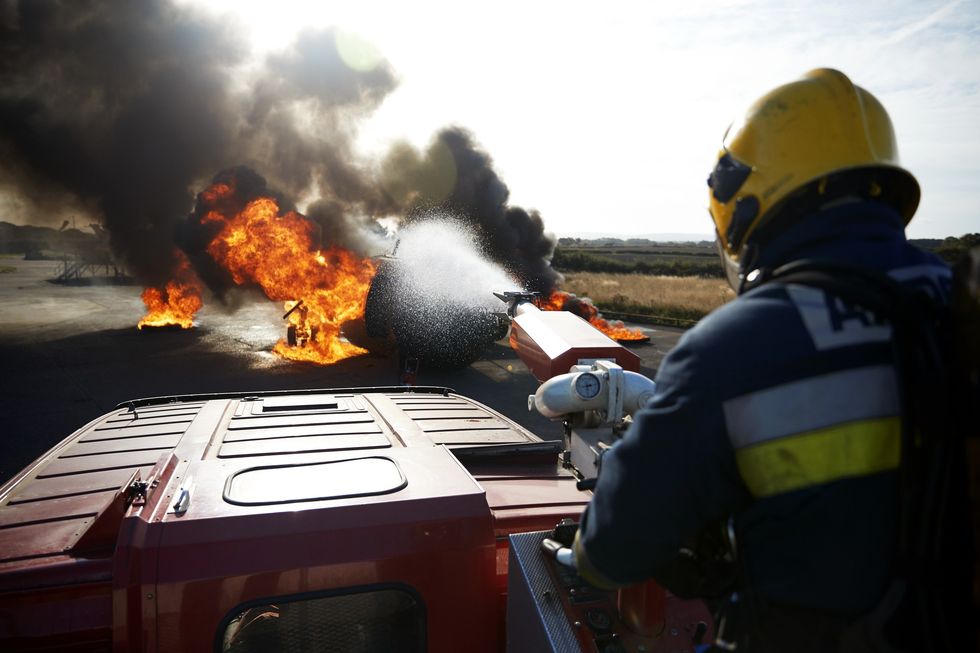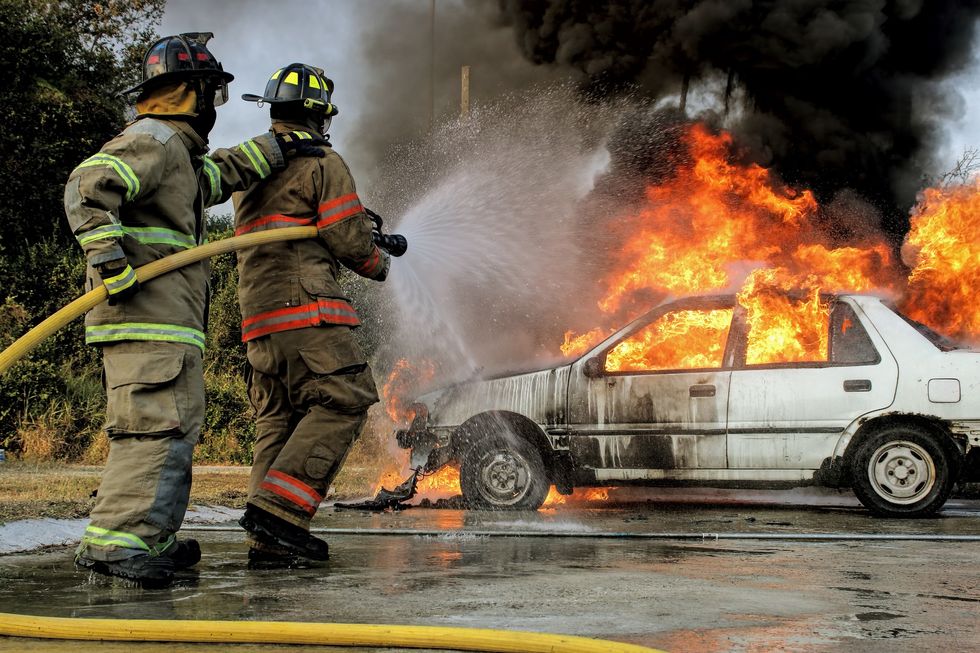The number of vehicle fires was down by 11 per cent over the past two years
GETTY
The decline in vehicle fires was attributed to the rise of plug-in cars
Don't Miss
Most Read
The number of vehicle fires on UK roads has been steadily decreasing with rates dropping more than 11 per cent in the past two years.
New research has found that while the number of fires has dropped, deaths relating to fires are still at a five-year high.
Official reports found that 23 deaths occurred yearly on average before Covid, but over the past two years, they have been as high as 28 fatalities. In the past five years, 136 people have died in vehicle fires, of which 100 fatalities took place in cars.
A further2,409 Britons suffered burns or other non-fatal injuries from vehicle fires, of which 1,338 happened in cars.
Do you have a story you'd like to share? Get in touch by emailingmotoring@gbnews.uk

More than 2,400 Britons suffered injuries from car fires over the last two years
GETTYA report by the Home Office detailed how car fires are more likely to be accidental than before the coronavirus pandemic.
Tony Rich, AA spokesperson on road incidents and hazards said: “Against a general trend of fewer ‘primary’ fires in the UK, the number of vehicle fires stands out as going down even faster. Yet, they appear to be getting more lethal, which is a major worry.
“It is hard to put a finger on a specific reason for the decline in car fires. However, a lower percentage of deliberate fires is a big indicator, perhaps due to improved security systems now appearing in older cars.”
He added that plug-in technology has aided in the decline of fires through added electrical items in a car, such as in-car entertainment, dash cams, mobile phones and sat navs.
Rich commented: “AA patrols, who are used to trying to trace the cause of an electrical fault in a broken-down older vehicle, recognise the danger when they find botched wiring that is one spark away from a short circuit and then a fire. Thankfully, it is less common than it used to be.”
National Highways explained that vehicle fires represent a small number of the incidents it attends, dealing with over 290,000 incidents on the strategic road network as vehicle fires represent less than one per cent.
Speaking previously to GB News, a spokesperson for National Highways said: "Safety is our priority and sometimes temporary lane and carriageway closures are necessary while the fire service arrives, assesses and begins to deal with a fire.
“The intensity and duration of larger fires affecting heavy goods vehicles can mean resurfacing needs to take place after the fire has been extinguished and the vehicle removed."
Petrol and diesel are highly flammable fuels while the lithium batteries in electric cars have also been known to burn rapidly and intensely.
London Fire Brigade told GB News: “Anyone who comes across a suspected car fire should call 999 immediately."
Data obtained exclusively by GB News found that there were 14,920 vehicle fires last year across the UK equating to almost 41 every single day. Ford and BMW were recorded as having the most fires with Ford recording 116 cases in 2023.
LATEST DEVELOPMENTS:

The AA recorded 136 deaths attributed to vehicle fires over the past five years
GETTYDevon and Somerset Fire and Rescue Service explained that keeping up to date with a car service and MOT will reduce the risk of a car catching fire.
Most fires attended by the rescue service can be “prevented with regular car maintenance”.
The service said: “You can reduce your risk of having a car fire by making some simple pre-journey checks."













